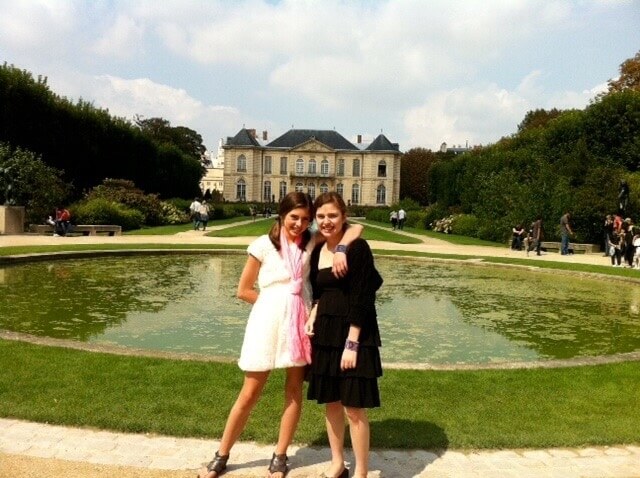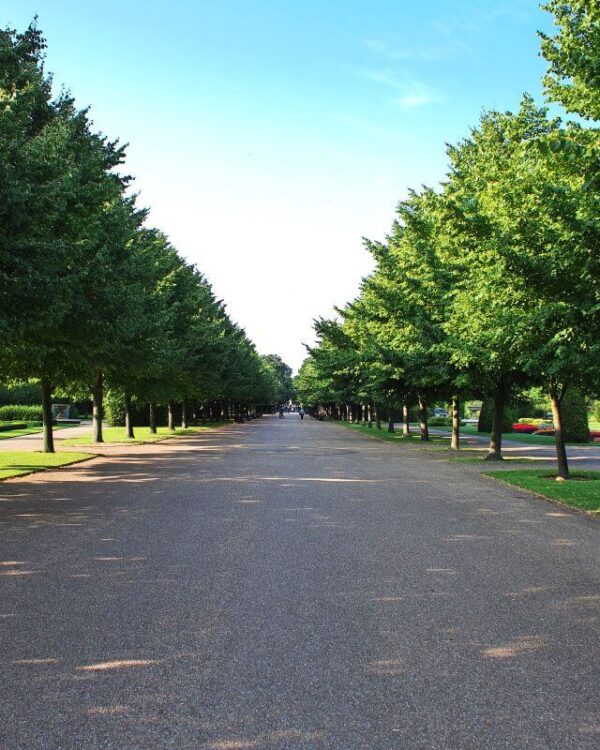About the Musée Rodin in Paris – History and Meaning
The Musée Rodin was opened in 1919, just two years after the death of Auguste Rodin. It was originally created to house Rodin’s private collection of sculptures, which he bequeathed to the French state. The museum now contains not only Rodin’s works, but also those of other artists from the late 19th and early 20th centuries – including Camille Claudel and Claude Monet.
The Rodin Museum is located in the Hôtel Biron, which was built in 1732 for a financier, Abraham Peyrenc de Moras. After he died, his widow leased the house to Anne Louise Bénédicte de Bourbon (the Duchess of Maine). The hotel changed hands several times over the years, and it’s named after one of its owners – Louis Antoine de Gontaut-Biron, the Duke of Biron who was a hero in the Battle of Fontenoy.
The Musée Rodin is one of the most popular museums in Paris – and with good reason. It’s home to some of the world’s most famous sculptures, including The Thinker and The Kiss. Many are displayed in a beautiful sculpture garden. Even if you’re not a huge fan of art, the Rodin Museum is definitely worth a visit.
More About the Contents of the Musée Rodin
As well as sculptures, the Musée Rodin also contains paintings, drawings, letters, photographs and antiques. There are more than 20,000 items in total! The museum is arranged chronologically, so you can see how Rodin’s style developed over time.
One of the highlights of the Rodin Museum is The Gates of Hell. This massive sculpture was inspired by Dante’s Inferno, and Rodin worked on it for 37 years – from 1880 until his death in 1917. It’s made up of more than 200 figures, and it’s an impressive sight. Some other interesting sculptures are:
- Adam;
- Danaïd;
- Monument to The Burghers of Calais;
- The Age of Bronze.
If you’re interested in learning more about Auguste Rodin and his work, then the Musée Rodin is the perfect place to do it!
Practical Information About the Rodin Museum
The Musée Rodin is open every day except Monday, from 10 a.m. to 6.30 p.m. The ticket office closes at 5.30 p.m. Admission is €13 on most days, but the first Sunday of every month is free for everyone. If you’re a journalist or EU citizen under 26, you can enjoy free entry any time.
The Rodin Museum is located at 77 rue de Varenne, just next to the Varenne metro station (line 13). Other nearby stations are Invalides (lines 8 and 13) and Sèvres-Babylone (lines 10 and 12). The nearest RER stop is Invalides (line C), but it’s about a 10-minute walk from the museum.
If you’re planning on visiting other museums while you’re in Paris, then it’s worth getting a Paris Museum Pass. This gives you free entry to over 60 museums and monuments, including the Musée Rodin. You can buy a pass for two days (€52), four days (€66) or six days (€78).
See All the Sculptures by Auguste Rodin for Yourself!
The Rodin Museum is definitely worth a visit if you’re in Paris. It’s a great opportunity to see some of the world’s most famous sculptures, and to learn more about Auguste Rodin – one of the most important artists of the late 19th century. So why not add it to your list of places to see in Paris?
Have you ever been to the Musée Rodin? Which artworks grabbed your attention the most? Share your stories in the comments below!
Similar Posts:
- Best Paris Art Museums. Read Our Guide and Visit the Best Museums in Paris
- A Guide to the Best Paris Museums: 17 Best Museums in Paris to Fill Your Itinerary and Camera Roll
- Visit the Musée d’Orsay and Explore the Best Impressionist Works of Art. Orsay Museum – Exhibitions, Admission, Hours
- The Musée de l’Orangerie: History, Tickets and Everything Else There Is to Know About This Museum in Paris
- Discover the Oldest Park in Paris: Tuileries Garden in Paris (Jardin des Tuileries)
- Les Invalides, Paris. Plan Your Visit to Les Invalides in Paris. See Hotel des Invalides, Tombs, and Military Museum
- The Petit Palais: Exploring the City of Paris’ Museum of Fine Arts (Musée des Beaux-Arts de la Ville de Paris)
- La Conciergerie in Paris: Exploring the Former Courthouse and Prison Where Marie-Antoinette Was Sentenced



